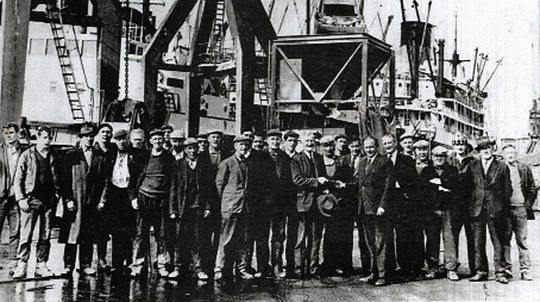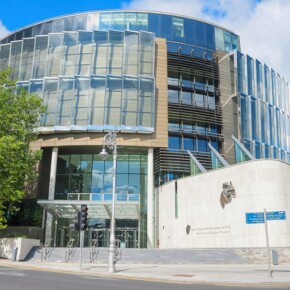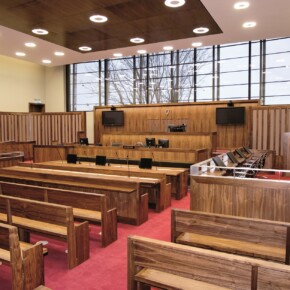Service for deceased dockworkers to be held
Dublin People 13 Apr 2013
A SERVICE for all deceased Dublin dockworkers will be held at St Laurence O’Toole’s Church, Sheriff Street, this Saturday night, April 20.
The Dublin Dockworkers’ Preservation Society is organising the service.
Declan Byrne, chairperson of the society, said:
“Last year we held seven photographic exhibitions, talks and a musical event. In all, over 3,000 people attended our events.
“This year we have picked one dockland community- Sheriff Street – and we intend holding an ecumenical service of remembrance.
“People are invited to congregate at the Five Lamps at 7.45pm and to walk to the church – St Laurence O’Toole – in a candlelit procession led by a lone piper.
“From 8pm to 8.15pm we hope to provide music and then the service will begin.
“Through music, memories, poetry, prayer and reflection we hope to honour all deceased dockworkers.
“The ceremony will last one hour and will be followed by a social evening and photographic exhibition in the nearby Sheriff Youth Club.
?
Mr Byrne explained:
“Since 1870 (when six small boats raced into Dublin bay at the sight of a sailed cargo ship and the first crew who landed their hook in the bow of the ship secured the right to discharge and load the vessel in Dublin Port) there has been a tradition of people from the surrounding areas working in Dublin docks.
“Thus through these
‘hobblers’ the tradition of stevedoring and Dockers began.
?
Mr Byrne said the port became the heart that kept the dockland communities of Sheriff Street, Summerhill, Gardiner Street, East Wall, Ringsend and Pearse Street alive and prosperous.
“At its height Dublin Port employed thousands of men drawn almost exclusively from these areas,
? he stated.
“In the 1940s with the gradual introduction of forklifts/ palletisation, followed in the 1970s with containerisation, this way of life came to an end.
?
Mr Byrne said that as a result, a labour tradition rooted in families and communities was wiped out.
“We were set up to honour these men and to preserve their history,
? he added.











